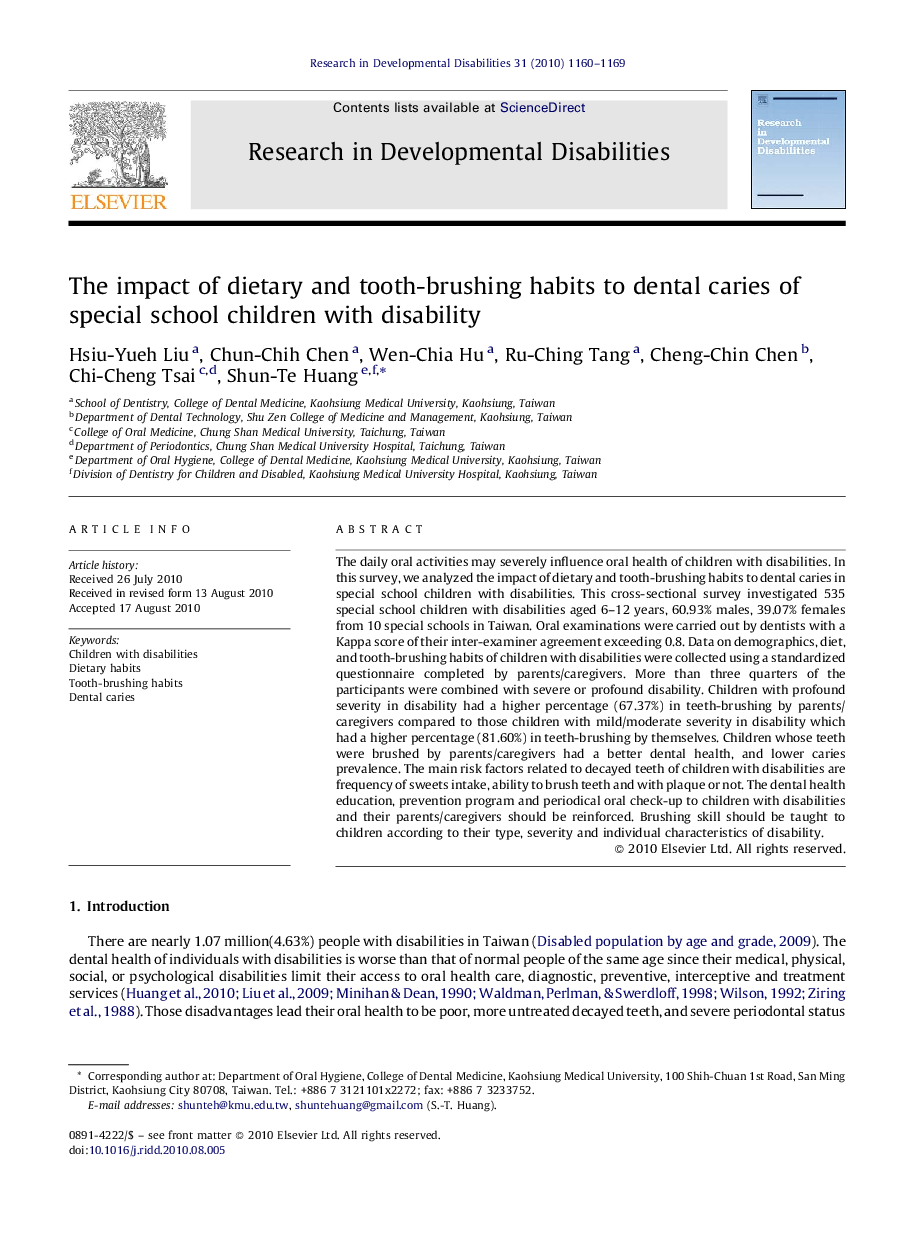| Article ID | Journal | Published Year | Pages | File Type |
|---|---|---|---|---|
| 10318253 | Research in Developmental Disabilities | 2010 | 10 Pages |
Abstract
The daily oral activities may severely influence oral health of children with disabilities. In this survey, we analyzed the impact of dietary and tooth-brushing habits to dental caries in special school children with disabilities. This cross-sectional survey investigated 535 special school children with disabilities aged 6-12 years, 60.93% males, 39.07% females from 10 special schools in Taiwan. Oral examinations were carried out by dentists with a Kappa score of their inter-examiner agreement exceeding 0.8. Data on demographics, diet, and tooth-brushing habits of children with disabilities were collected using a standardized questionnaire completed by parents/caregivers. More than three quarters of the participants were combined with severe or profound disability. Children with profound severity in disability had a higher percentage (67.37%) in teeth-brushing by parents/caregivers compared to those children with mild/moderate severity in disability which had a higher percentage (81.60%) in teeth-brushing by themselves. Children whose teeth were brushed by parents/caregivers had a better dental health, and lower caries prevalence. The main risk factors related to decayed teeth of children with disabilities are frequency of sweets intake, ability to brush teeth and with plaque or not. The dental health education, prevention program and periodical oral check-up to children with disabilities and their parents/caregivers should be reinforced. Brushing skill should be taught to children according to their type, severity and individual characteristics of disability.
Related Topics
Life Sciences
Neuroscience
Behavioral Neuroscience
Authors
Hsiu-Yueh Liu, Chun-Chih Chen, Wen-Chia Hu, Ru-Ching Tang, Cheng-Chin Chen, Chi-Cheng Tsai, Shun-Te Huang,
